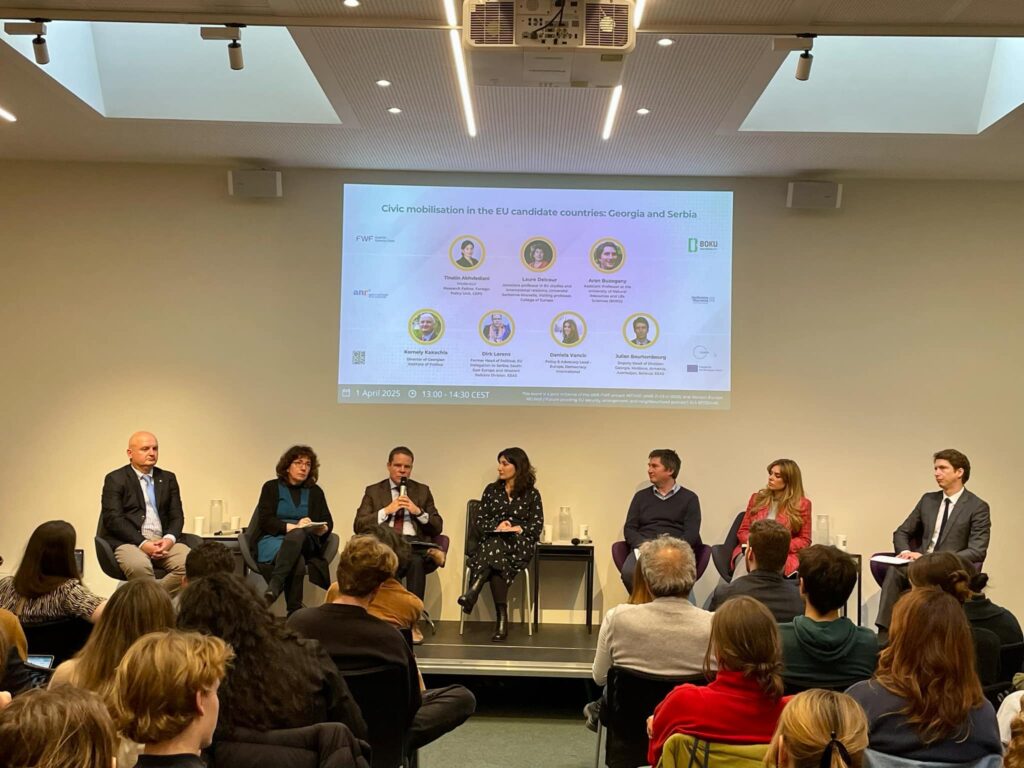In a timely and insightful discussion, experts and policymakers gathered to examine the ongoing waves of civic demonstrations in Georgia and Serbia—two EU candidate countries that have witnessed sustained public mobilisation in recent months. The event organised by Centre for European Policy Studies (CEPS) explored the main drivers of these protests, their evolution, and the European Union’s response.
The discussion provided a comprehensive exchange on the broader implications of these movements for the Western Balkans, the Eastern Neighbourhood, and the EU’s enlargement policy. Experts highlighted the role of civic engagement in shaping democratic resilience and governance reforms in both regions.
Hosted by Tinatin Akhvlediani, Research Fellow at CEPS, the event featured distinguished speakers, including:
- Laure Delcour, Associate Professor in EU Studies and International Relations, Université Sorbonne Nouvelle; Visiting Professor, College of Europe
- Aron Buzogany, Assistant Professor at the University of Natural Resources and Life Sciences (BOKU)
- Daniela Vancic, Policy & Advocacy Lead – Europe, Democracy International
- Kornely Kakachia, Director of the Georgian Institute of Politics
- Dirk Lorenz, Former Head of Political, EU Delegation to Serbia; South-East Europe and Western Balkans Division, EEAS
- Julien Bourtembourg, Deputy Head of Division: Georgia, Moldova, Armenia, Azerbaijan, Belarus, European External Action Service
The event, held in person, was a joint initiative of the ANR-FWF project INTEND (ANR-21-CE41-0025) and Horizon Europe REUNIR (“Future-proofing EU security, enlargement, and neighbourhood policies”) (GA 101132446).
Attendees engaged in thought-provoking discussions, assessing how these civic movements could influence future EU policies and regional stability. The event underscored the importance of ongoing dialogue between policymakers, researchers, and civil society actors to address democratic challenges and opportunities in the EU’s neighbourhood.

